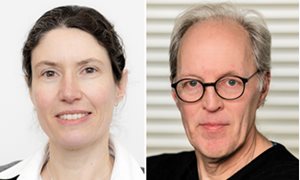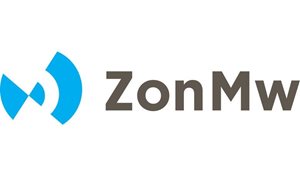 My name is Suraya Elfrink, Dutch, PhD candidate (2nd year) at the department of Tumor Immunology, theme Cancer development and immune defense.
My name is Suraya Elfrink, Dutch, PhD candidate (2nd year) at the department of Tumor Immunology, theme Cancer development and immune defense.
When you were a kid what did you want to be when you grew up? Can you tell us something about your child years.
When I was very young, I first wanted to train dolphins. After that, I wanted to become an archeologist. I was especially fascinated by the Roman Empire. Then in my early teens I was treated for cancer and realized there is still so much to be learned about cancer and cancer treatment! It was around the time I had to select my high school subjects to continue with. Since it was impossible to pick both history and biology, I chose biology. However I also had Latin for five years, so I did not have to give up on the Roman Empire.
What was your previous academic training, where did you study and why that study?
I did both my bachelor and master in Biomedical Sciences at the Radboud University. Here the study was (the first years) together with Medicine, which I liked, however I have always been sure I do not want to be a doctor. I also liked the freedom in the master phase, which allowed me to do several internships in the field of cancer research.
The RIMLS motto is: ‘Today’s molecules for tomorrow’s medicine’. What does this mean for you?
The motto applies very well to my research project. I am studying tetraspanin CD37, a transmembrane protein. Recently it was found that lymphoma patients without CD37 expression on their tumor cells have a worse survival than patients with tumor cells that do express CD37. The first group of patients also have higher levels of IL-6 in their tumors and blood. One of my projects is to use this knowledge to develop new treatment strategies for this group of patients.
Who is your great example as scientists? And please give a motivation why.
The first name that comes to mind is Sidney Farber. In the 1940’s, he was the first to treat children with leukemia with ‘chemotherapy’. Before he started his tests, the mortality rate was 100%. Even though no one initially believed in his approach, he persevered and really made a difference for patients then and patients now.
Which research discovery that you have made has made you most proud?
I haven’t made any major discoveries (yet), but recently I managed to set up a technique that wasn’t available in our lab yet. It was quite challenging at first, but with some help from a group at the Erasmusmc, the protocol is now working! With this technique I can take a closer look at the methylation of CD37. I just started to analyze patient samples, so who knows, a discovery might be waiting around the corner.
Given unlimited finance what experiment would you perform?
I would perform all kinds of –omics on CD37-negative vs CD37-positive tumor cells and healthy B cells, to help understand the cause ánd consequences of the loss of CD37 expression. And with that knowledge, hopefully identify new treatment options for these tumors.
What does your working area (desk, office) look like and what does it say about you (or your research)?
I am usually very organized. I also like lists and sticky notes, that way I don’t have to remember everything (when I don’t write things down, I will forget them for sure :-)
Nominate a colleague to be in the spotlight and what would you like to ask him or her?
Vera Dunlock, you did a lot of your studies in B cells, now you are also looking at T cells. Which one is your favorite?
What type of person are you, quick insights:
a) Mac or PC? : PCb) Theater or cinema? : Cinema
c) Dine out or dine in? : Dine out
d) Ferrari or Fiat? : Fiat
e) Shopaholic or chocoholic? : Both
f) Culture or Nature : Culture
Related news items

ZonMw Open Competition Grant for Annemiek van Spriel and Piet Gros
15 June 2021 Annemiek van Spriel, theme cancer development and immune defense, together with Piet Gros, Dept. of Chemistry, Utrecht University obtained a ZonMw Open Competition Grant to investigate IL-6 receptor structure and signalling in tumor cells. go to page
HFSP Grant for Johannes Textor
30 March 2020 Johannes Textor, theme Cancer development and immune defense, has been awarded a program grant of 1 million US dollars by The Human Frontier Science Program (HFSP) to investigate how T cells navigate extremely dense environments using experiments, modeling and methods from pedestrian dynamics. go to page
Human pDCs attract cytolytic lymphocytes in anti-cancer vaccination
6 February 2020RIMLS researchers Jasper van Beek and Jolanda de Vries, theme Cancer development and immune defense, discovered that pDCs can efficiently recruit cytolytic immune effector cells, a property that could be exploited in anti-cancer vaccines. They have published these findings in Cell Reports.
go to page
ZonMw funding for teams of Michiel Vermeulen and Jolanda de Vries
4 February 2020The awarded research projects of RIMLS researchers Michiel Vermeulen, Jolanda de Vries, Gerty Schreibelt and Martijn Verdoes and colleagues will initiate new research lines and collaborations between various research groups.
go to page
Niels Stensen Fellowship for Jorieke Weiden
6 January 2020 Jorieke Weiden was recently awarded a grant from the Niels Stensen Fellowship. Since the 1960s, the Niels Stensen Fellowship has been awarded annually to outstanding researchers who recently received their PhD to enable them to gain research experience at a top university or institute abroad. go to page
